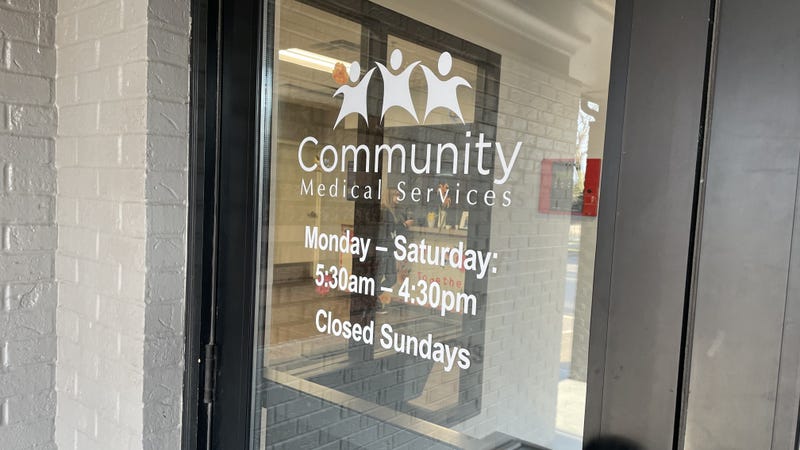
You may be surprised by what you first see as you walk through the doors at the Community Services Clinic addiction treatment center in Roseville for the first time.
Visitors through the doors of the clinic that offers medication and counseling to those suffering from opioid use disorder are first greeted by a warm, friendly staff at front desk looking into a brightly lit waiting room.
“I sit out front,” said Abby, a client services manager at CMS. “I am the first face someone is going to see when they come in the door here.”
The Roseville location, which opened in early March, is a walk-in clinic and CMS’s second clinic to open in the Twin Cities.
They operate another walk-in treatment clinic at 1020 West Broadway in Minneapolis.
“If we’re welcoming, treat them with respect, and treat people with a good first impression like we’d treat anyone else, they feel comfortable. They want to start talking and start their recovery journey,” said CMS Roseville clinic manager Justin Vue.
CMS offers a combination of medication-assisted treatments to combat opioid addiction, including heroin and fentanyl addiction.
According to CMS, medication-assisted treatment involves taking small doses of medication, “that activate the same pathways of the brain as opioids, while blocking the pathways from activation by opioids.”
Seneca Krueger is the clinic’s Community Impact Manager and sees the opioid epidemic’s impact on a daily basis.
“When I’m talking to folks out in the community, I ask them how much of their day is spent trying to stay well,” Krueger said. “They will say, ‘All of my day.’”
Krueger says medication like suboxone, naltrexone, and methadone make an almost immediate impact.
“What our medications, if at the right dose, will keep someone from experiencing withdrawal symptoms. Whatever someone was doing to acquire those drugs before to try and stay well, we can really help you in that space.”
During the first phase, patients will come to the clinic for treatment every day, for three months.
“It’s a big ask,” Krueger said. “But it shows the dedication to treatment that people have.”
There’s a bigger purpose for the consistent interaction.
“Coming to the clinic feels like a big thing, but what we’re able to do is create some structure in peoples’ lives.”
The initial intake for new patients includes a questionnaire, urine sample, pregnancy testing (if applicable), an assessment with a medical provider, and a counselor assessment.
“I think one of the things that has happened during this opioid epidemic and crisis is that we have spent a lot of time talking about the over treating of physical pain and how we got here with that,” Krueger said. “I think we have no talked enough about the under treating of emotional pain.”
Vue says the initial interaction between the patient and provider goes a long way in the recovery journey.
“When they meet with the provider, they’ll get more in-depth about the medication the patient is seeking. The provider will determine what medication and what level to start them with,” he said.
Treatment at CMS goes beyond medication.
“Every patient that comes in is assigned, a counselor,” Krueger said. “They’ll meet once a week. That’s a place to talk about goals and some of that deeper stuff.”
As part of WCCO Radio In-Depth, this week WCCO Radio’s Mark Freie is looking at how Community Medical Services treats opioid addiction at its recently opened treatment clinic in Roseville. For more information about CMS visit communitymedicalservices.org.
